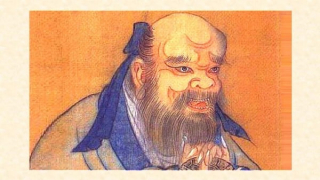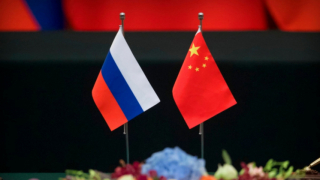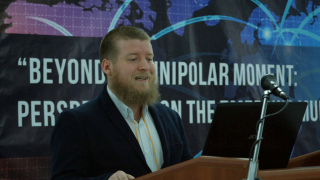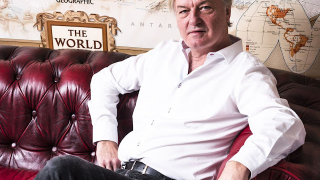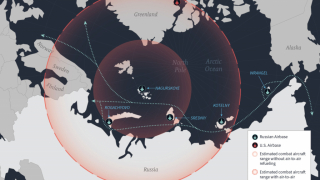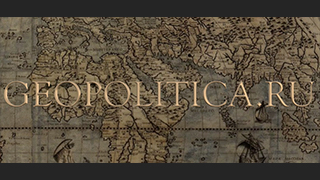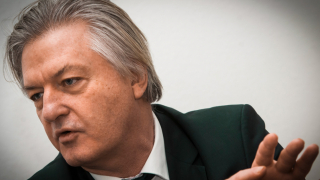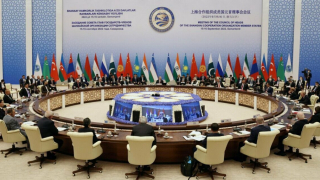An era of ‘Dead Wood’
What is the Dead Wood era? It is the hiatus ‘twixt the slow decomposition of the body of the immediate post-war era – its’ zeitgeist; its political and economic structures – and the shoots of the new era, just breaking earth, but whose stem and leaves, are not yet visible.
In a widely shared piece, Simon Tisdall – a doyen amongst establishment UK commentators – writes, that "the awful truth is dawning: Putin may win in Ukraine. The result would be catastrophe":
“What if Ukrainian forces start losing? What if the country is partitioned, or nears collapse? The price of failure – the true cost of a Putin victory – could be staggering. It is potentially unsupportable for fractious western democracies and poorer countries alike, beset by simultaneous post-pandemic security, energy, food, inflation and climate crises. Yet out of myopic self-interest over issues such as Russian oil and gas imports, and from fear of wider escalation, western leaders duck the tough choices that could ensure Ukraine’s survival and help mitigate such ills.
“The past week furnished a grim glimpse of the future that awaits, if Putin is able to continue to wage war with impunity … the International Monetary Fund predicted global economic fragmentation, rising debt and social unrest … The broader, negative political impact of the war, should it rage on indefinitely, is almost incalculable … the full or partial subjugation of Ukraine would spell disaster for the international rules-based order ... In prospect is a second cold war with permanent NATO bases on Russia’s borders, massively increased defence spending, an accelerating nuclear arms race, unceasing cyber and information warfare, endemic energy shortages, rocketing living costs, and more French-style, Russian-backed right-wing populist extremism.
“Why on earth would politicians such as America’s Joe Biden, Germany’s Olaf Scholz, and France’s Emmanuel Macron tolerate so fraught and dangerous a future when, by taking a more robust stand now, they might prevent much of it from materialising?”
One can detect the rising desperation; and yet ... and yet, all these grim prospects outlined by Tisdall are not carved in stone. Russia and China, well before the Ukraine conflict, had said it clearly: 'This major, global inflection point in global ‘direction’ can be managed through diplomatic negotiations; And only were that to fail, would military-technical options become necessary'. In other words, Tisdall and his ilk have only to drop their denial that the ‘global order’ is a ‘forever order’. That is, step beyond the accumulated ‘dead wood’ of the passing era.
The ‘will for change’ is, however, far from confined to ‘others’. Yes, the ‘Rest’ (those other G10) do see the Ukraine conflict very differently to that western current, so concisely articulated in the Guardian. But the hidden anxiety, underlying Tisadall’s apocalyptic, emotional charge, is not fear from the Rest, but rather, fear of demons within.
The western financialised, inverse-pyramid of leveraged derivative ‘paper’, resting precariously - with its bottom sat upon a tiny, commodity-collateral base – is shaking. The western sanctions on Russia have unleashed the genie of spiking commodity prices, threatening collateral mayhem to the debt-mountain above. And yet, other ‘demons’ stalk Europe too: incipient hyperinflation; economic contraction; inequalities of wealth; and above all the sense that its’ cocksure leadership is not a jot invested in the people, but rather views them with barely concealed contempt.
Macron won the French election (as expected), yet had to admit that “Many of our compatriots voted for me not out of support for my ideas - but to block those of the extreme Right" [which is how Le Pen is stigmatised by the MSM]. In practice, Macron secured just four out of 10 French votes, and now faces a battle to hold onto his majority in parliament, against competing nationalist and Left-wing camps which, combined, secured a third of the vote each in round one.
The European establishment that had intervened explicitly in favour of Macron has breathed a deep sigh of relief, but the signs are that his public is sullen and angry. France faces an uneasy period ahead of civil strife.
Tisdall however, ignores these internal demons, to view Ukraine as ultimately about the survival of the ‘international rules-based order’. President Biden and European leaders have repeatedly framed the conflict in these terms, as well.
“But therein lies the disconnect with much of the Global South”, Trita Parsi writes:
“In conversations with diplomats and analysts from across Africa, Asia, the Middle East and Latin America, it was evident to me … that demands that they make costly sacrifices by cutting off economic ties with Russia to uphold a ‘rules-based order’ - have begotten an allergic reaction. That order hasn’t been rules-based. Instead, it has allowed the U.S. to violate international law with impunity. The West’s messaging on Ukraine has taken its tone-deafness to a whole new level, and it is unlikely to win over the support of countries that have often experienced the worse sides of the international order”.
The iconic expression of these sentiments occurred at last week’s G20 meeting. The G7 leaders and their allies (10 in all) walked out of the G20, immediately as the Russian representative began to speak (virtually). The other 10 however, continued with business as usual: G20 now becomes the G10 + G10 -- the West versus the Rest. The divide can’t be hidden anymore.
Chastened by Putin’s gross violation of norms, Biden proclaims, democracies everywhere will band together in a muscular reaffirmation of the liberal international order.
That, however, is wishful thinking -- Shivshankar Menon, a former Indian National Security advisor has written in Foreign Affairs:
“The war is no doubt a seismic event that will have profound consequences for Russia, its immediate neighbours, and the rest of Europe. But it will neither reshape the global order nor presage an ideological showdown of democracies against China and Russia … Far from consolidating “the free world,” the war has underscored its fundamental incoherence. In any case, the future of global order will be decided not by wars in Europe - but by the contest in Asia, on which events in Ukraine have limited bearing”.
Source: Al Mayadeen English


